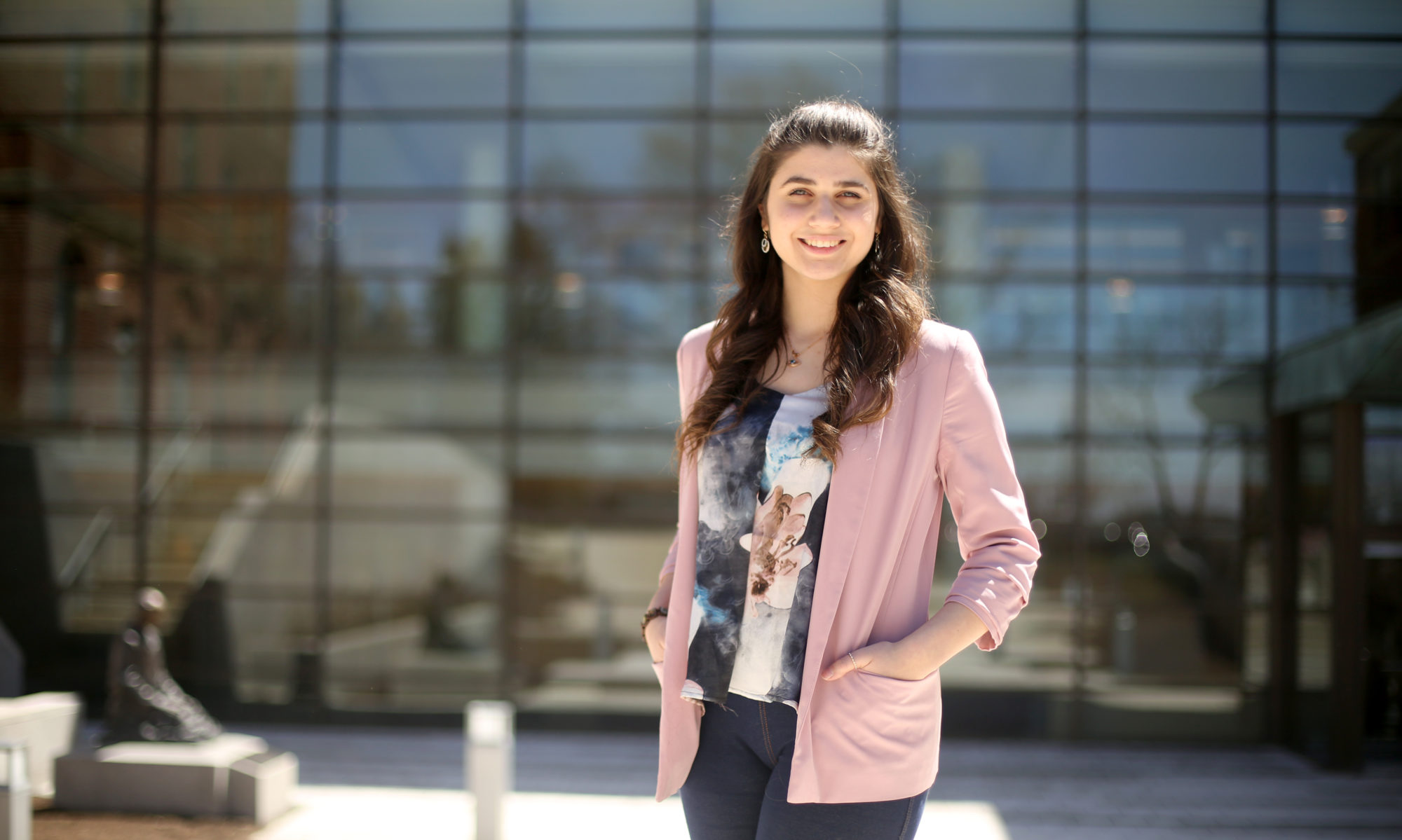In the SFS Tanzania program, we talk a lot about people and their culture since they are directly affected by the implications of wildlife conservation policies. There is a total of 126 different tribes in Tanzania. Around our camp, we are primarily surrounded by people from the Iraqw tribe, while areas closer to the national parks tend to be occupied by the Maasai. We were able to discuss their traditions in the classroom, in the field, and through a lot of literature readings. We were able to visit two locations, one discussing the traditions of the Iraqw tribe and the other was a cultural boma to understand the livelihood of the Maasai people.
The Iraqw tribe:
The Iraqw population are mostly agro-pastorilist; there are around 462,000 individuals ub Tanzania, in which approximately 80% of that population is Christian. The Iraqw population take a greater advantage of their natural resources in order to improve their lifestyles. Natural resource uses include, medicinal and hygienic uses, in addition, they contribute to cooking, construction, and maintenance of livestock.
Livestock has a great importance to Iraqw people as it helps with multiple aspects of their life, including, symbolic meaning, and nutritional benefits to both themselves and their environment which plays a role in this tribe’s culture. Livestock such as, cows, served as the standard measurement for currency in comparison with what is used in modern days, gold in the 1970s! Uses of livestock for clothing purposes contributes towards the socioeconomic status of the people wearing thus, influencing social interactions within this tribe.
Marriage is another big ritual in Iraqw culture, however, the gender roles tend to be skewed in favor of men being superior to women. Part of the reason for this undeserved superiority is because men are able to ask multiple women to be their wife and whomever accepts their request will marry them. Even though marriage is not equal, the symbolic cultural beauty behind such courtship in Iraqw tradition is very important in this tribe. There is great symbolism within the wedding dress that is made out of goat skin and takes women approximately four months to make. The dress is full of colorful beading that represents symbolic meanings that include, vegetation, blood, milk, water, forest/wood, and the sun. All these resources are highlighted in a single wedding dress in which two people become one; this dress especially highlights the importance of natural resources to Iraqw culture.
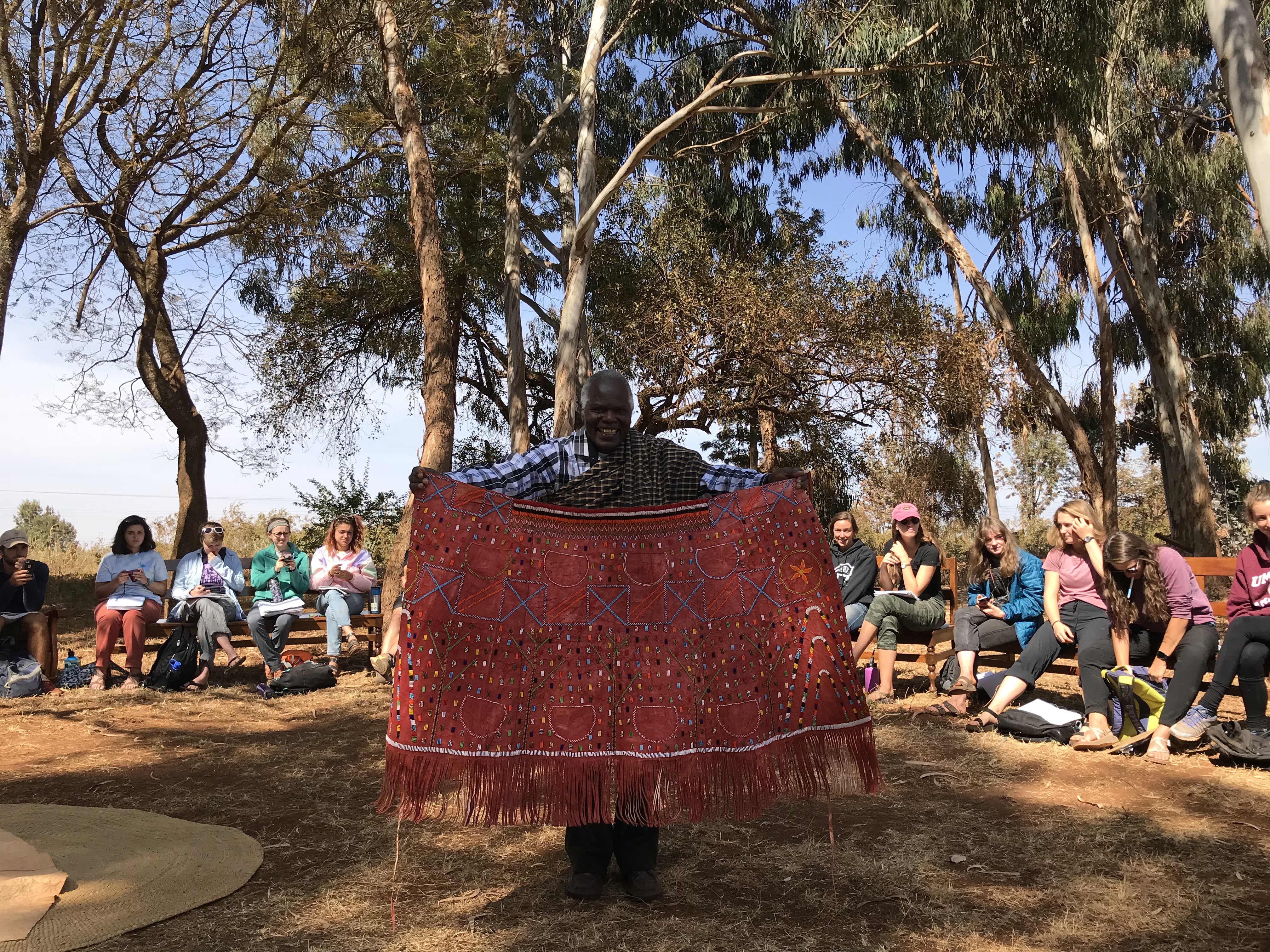 Daniel showing us the beautiful wedding dress worn in among the Iraqw
Daniel showing us the beautiful wedding dress worn in among the Iraqw
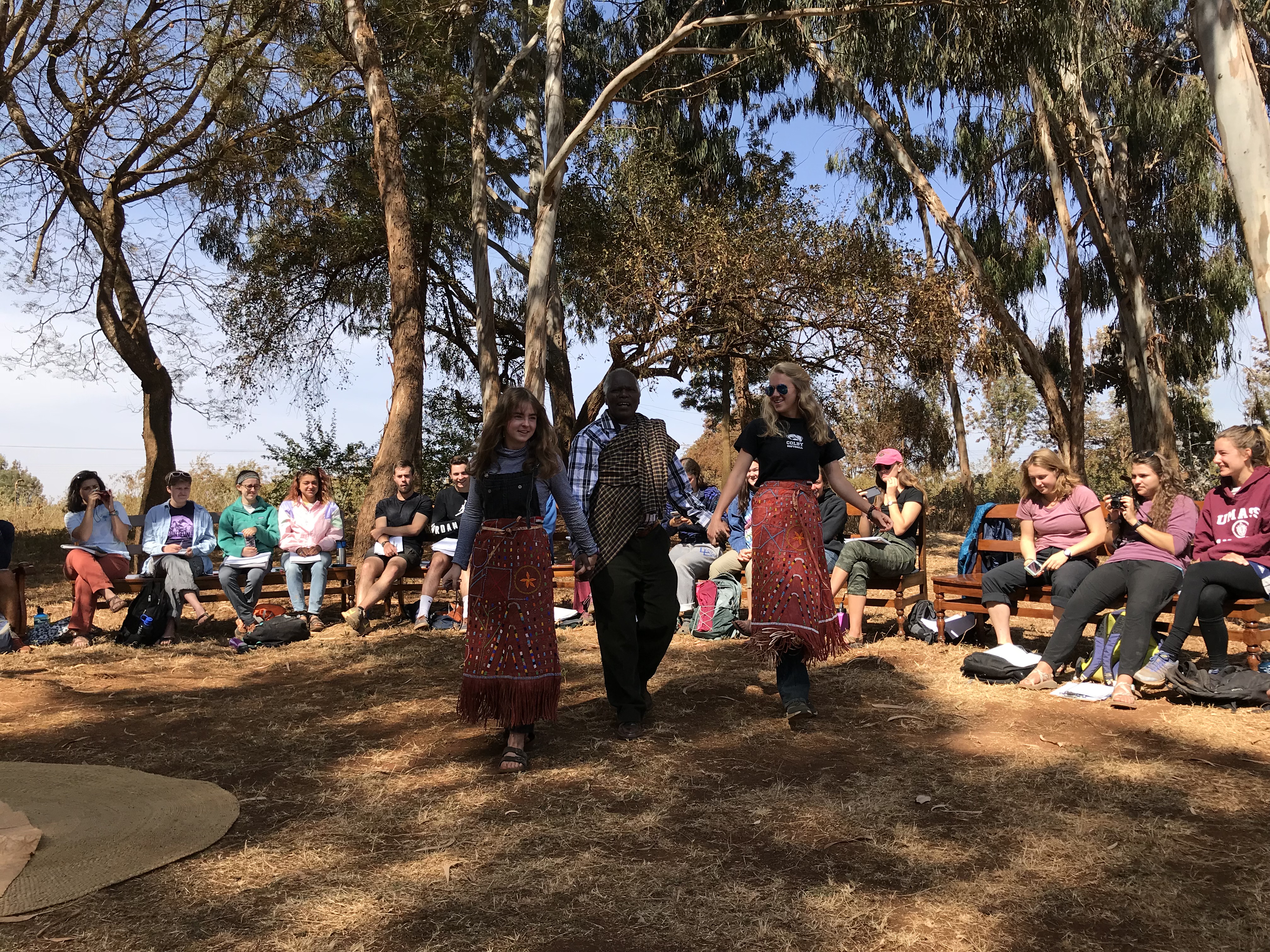 Lucie and Lucy were able to be part of the wedding showing as Daniel guided them through the ceremony
Lucie and Lucy were able to be part of the wedding showing as Daniel guided them through the ceremony
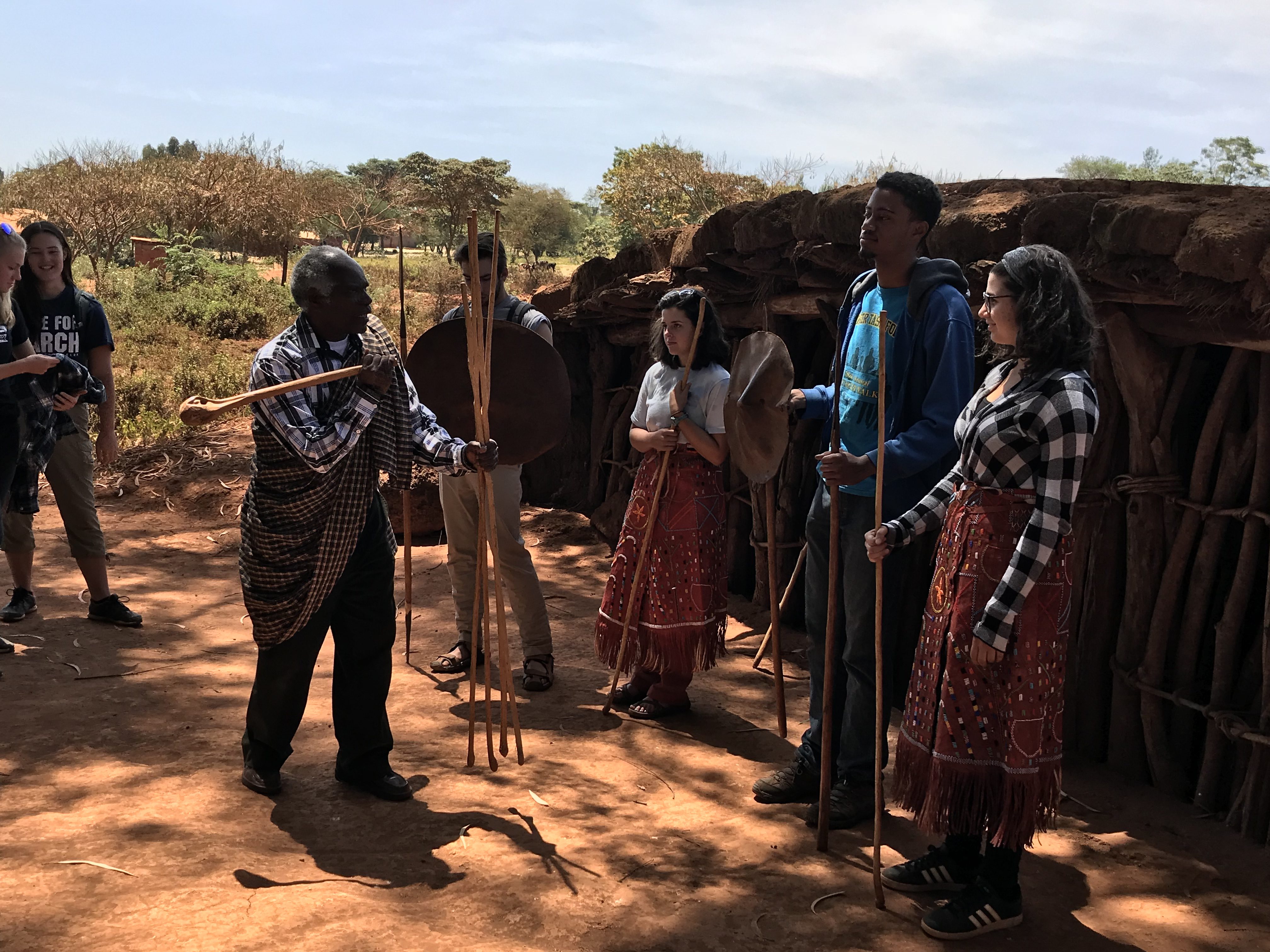 Me and couple of other students were also able to be part of the wedding ceremony as Daniel explained it to us
Me and couple of other students were also able to be part of the wedding ceremony as Daniel explained it to us 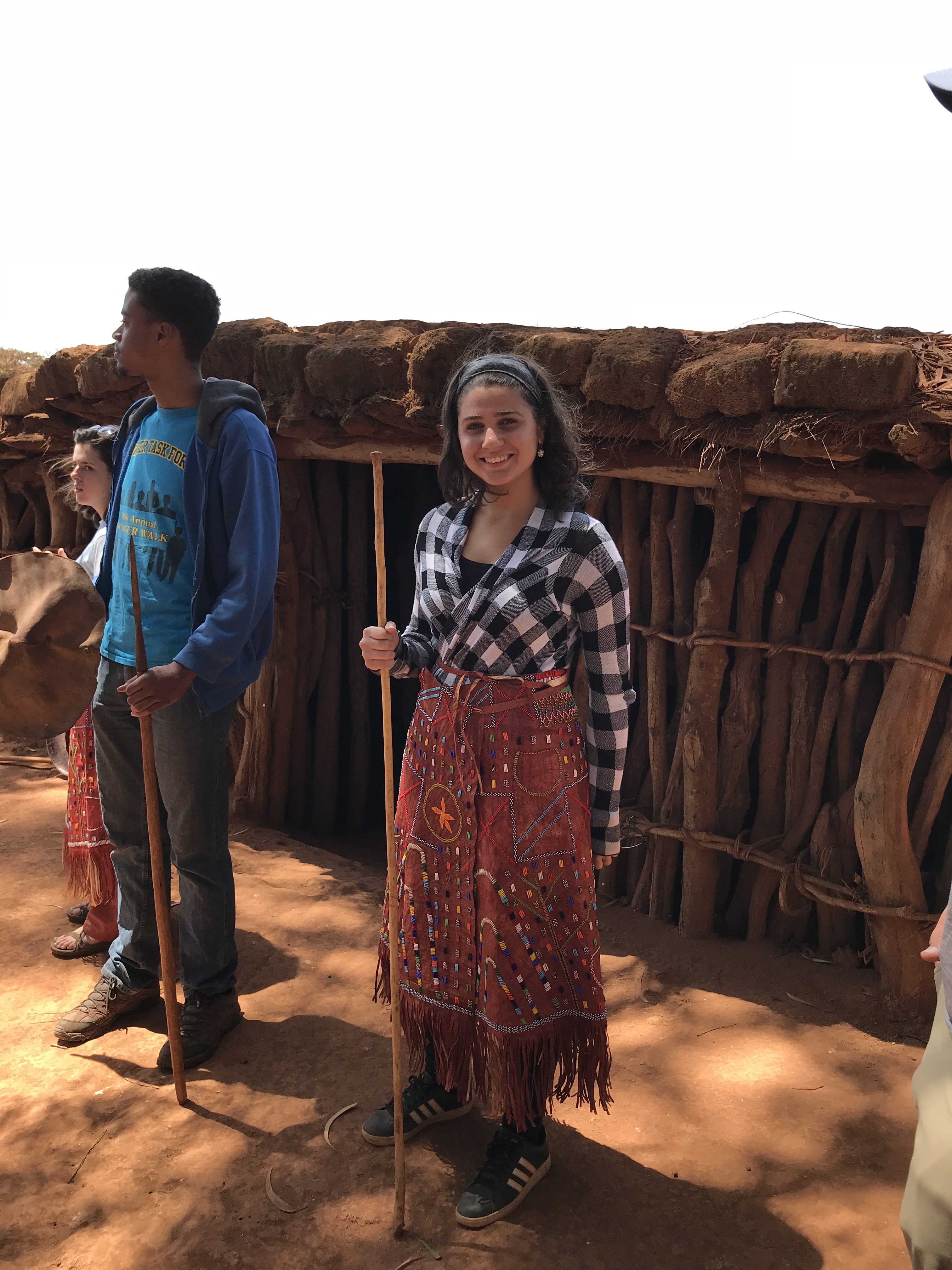 Disappointed that my outfit didn’t match but happy to be part of the ceremony and try to throw spears in the distance
Disappointed that my outfit didn’t match but happy to be part of the ceremony and try to throw spears in the distance
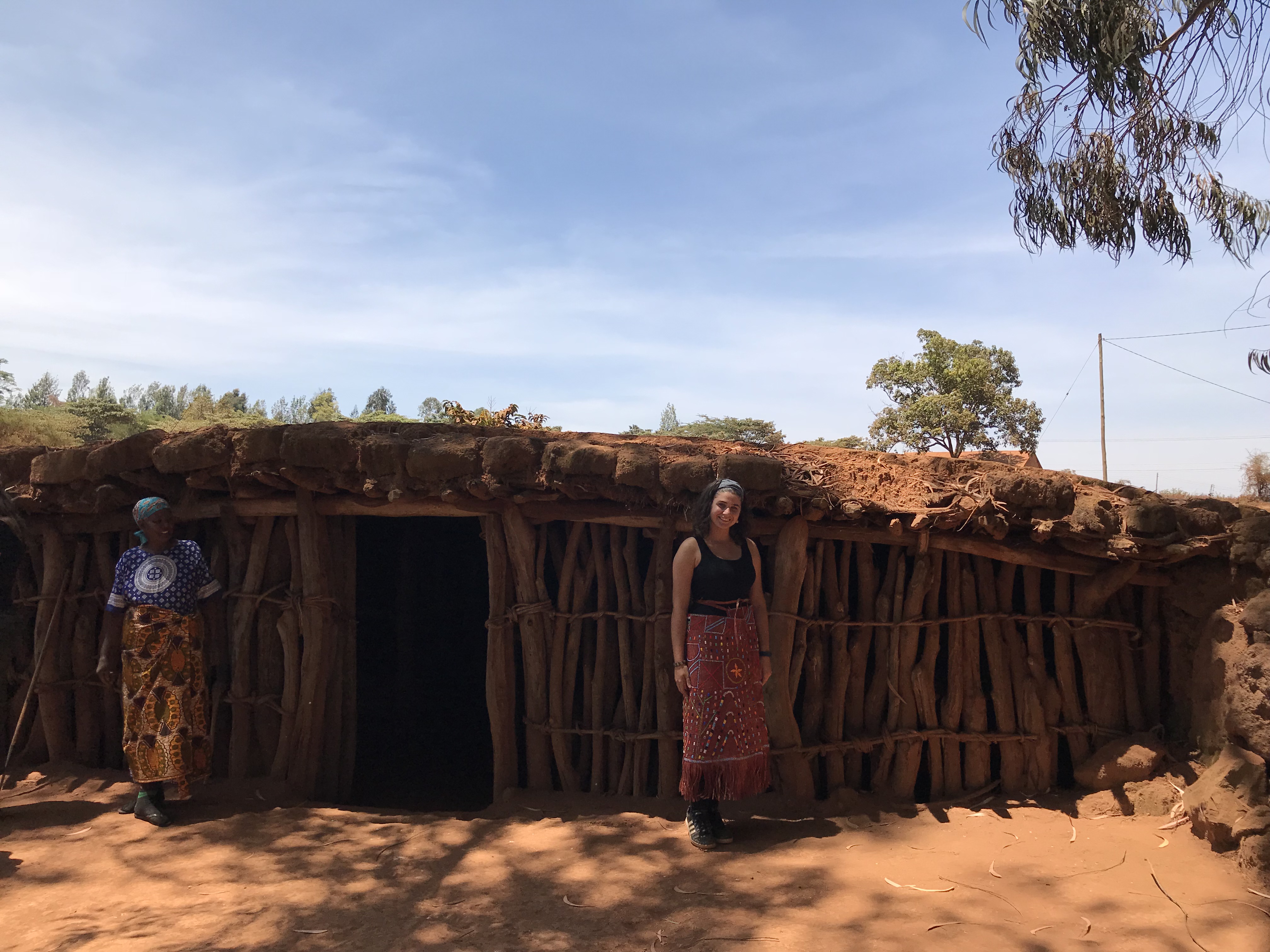 Me and the mama of the house. This house is leveled with the ground to avoid elephants as they can walk over the house without damaging it!
Me and the mama of the house. This house is leveled with the ground to avoid elephants as they can walk over the house without damaging it!
The Maasai tribe:
Maasai practice a variety of ceremonies that are often life altering for individuals among this tribe. Such ceremonies include, coming of age rituals (especially common among the male population), marriage, and much more smaller ceremonies. However, these cultural ceremonies have been greatly impacted by governmental enforcement. We focused on the impacts that cultural bomas and tourism have on the Maasai and their culture by discussing the positive and negative aspects of the economic, ecological, and socio-cultural changes among this tribe.
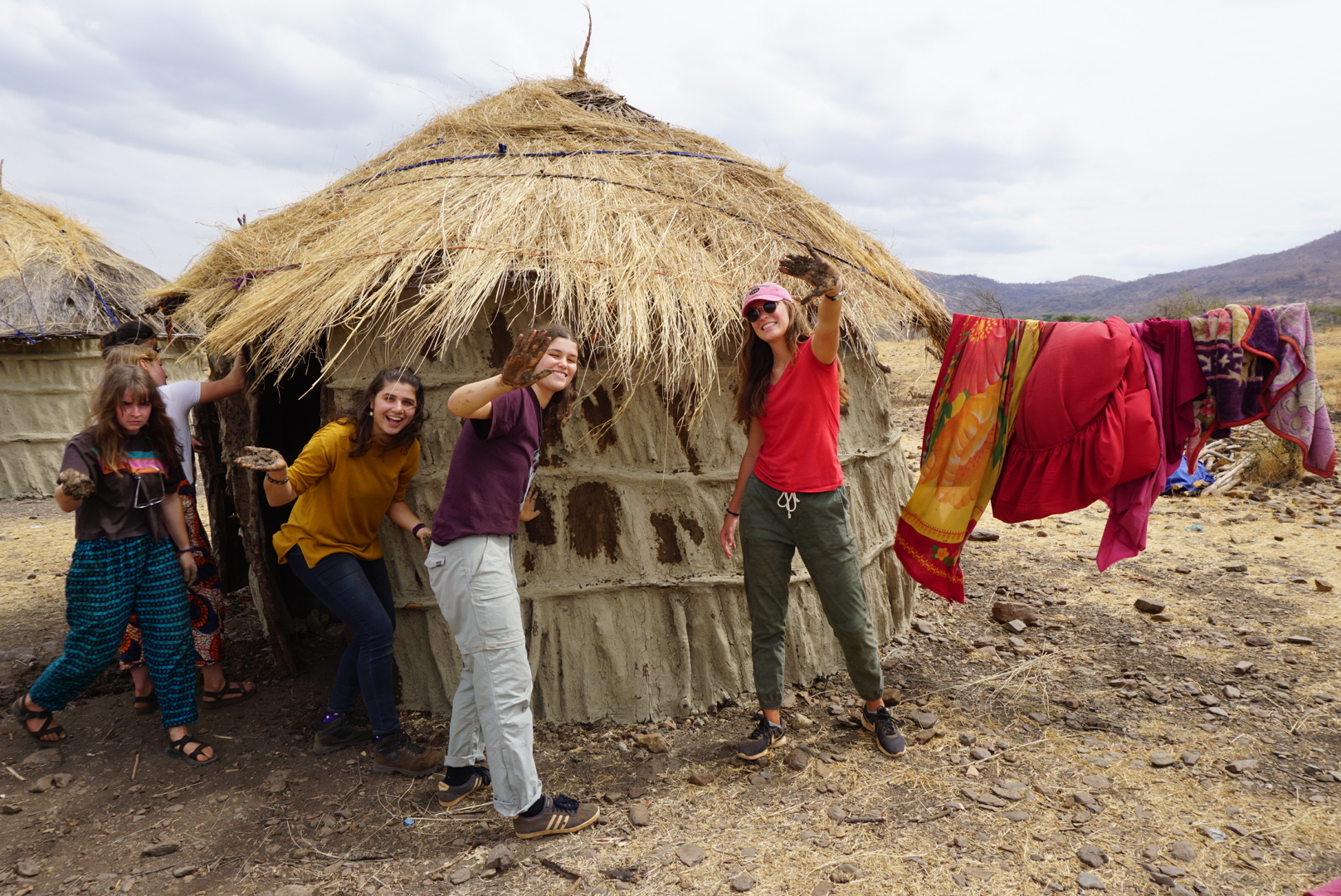 All the gals doing womanly things! Happy to be spreading cow poop (that acts as cement) all around the boma
All the gals doing womanly things! Happy to be spreading cow poop (that acts as cement) all around the boma
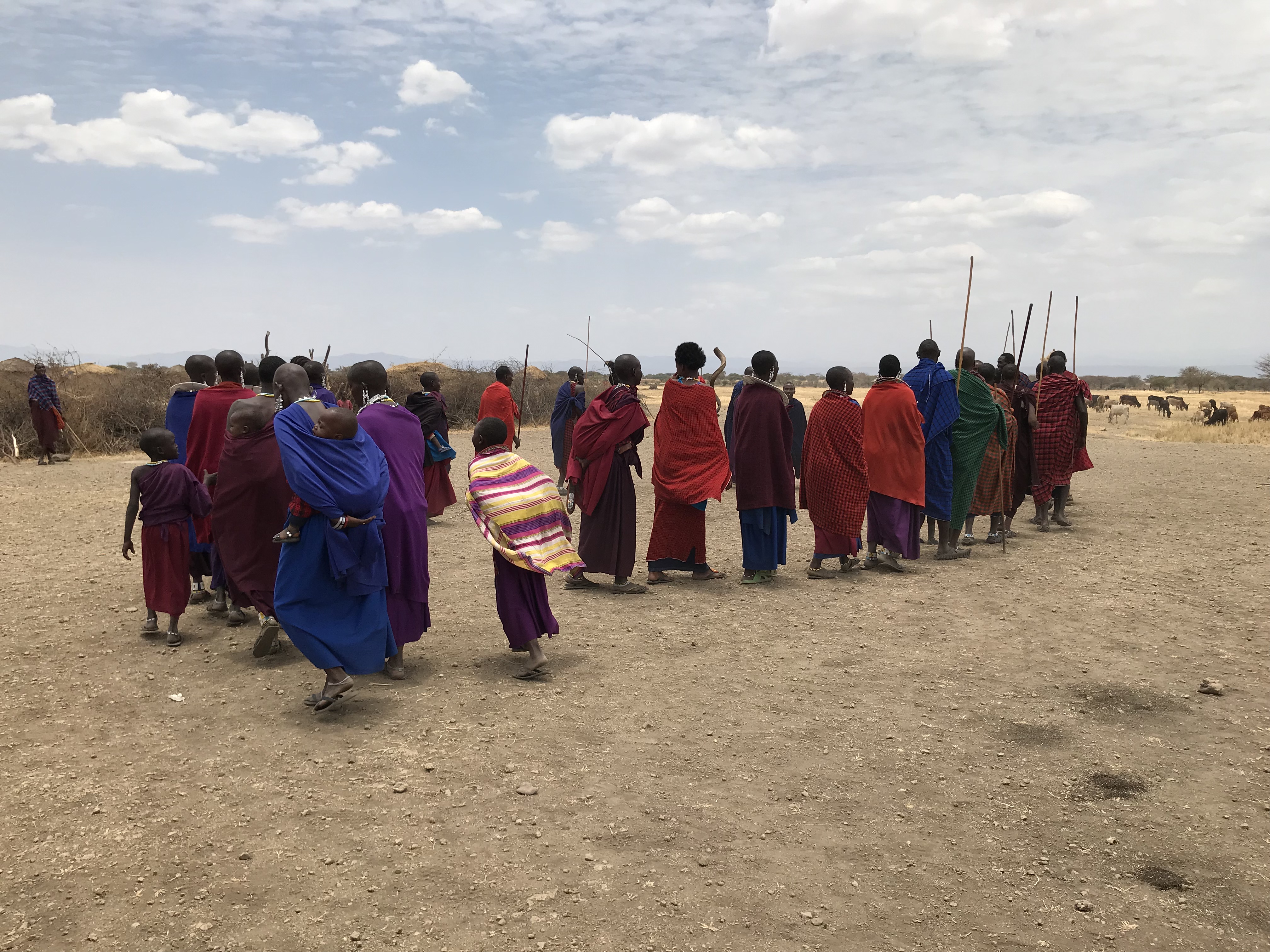 The Maasai performing their dances infront of us
The Maasai performing their dances infront of us
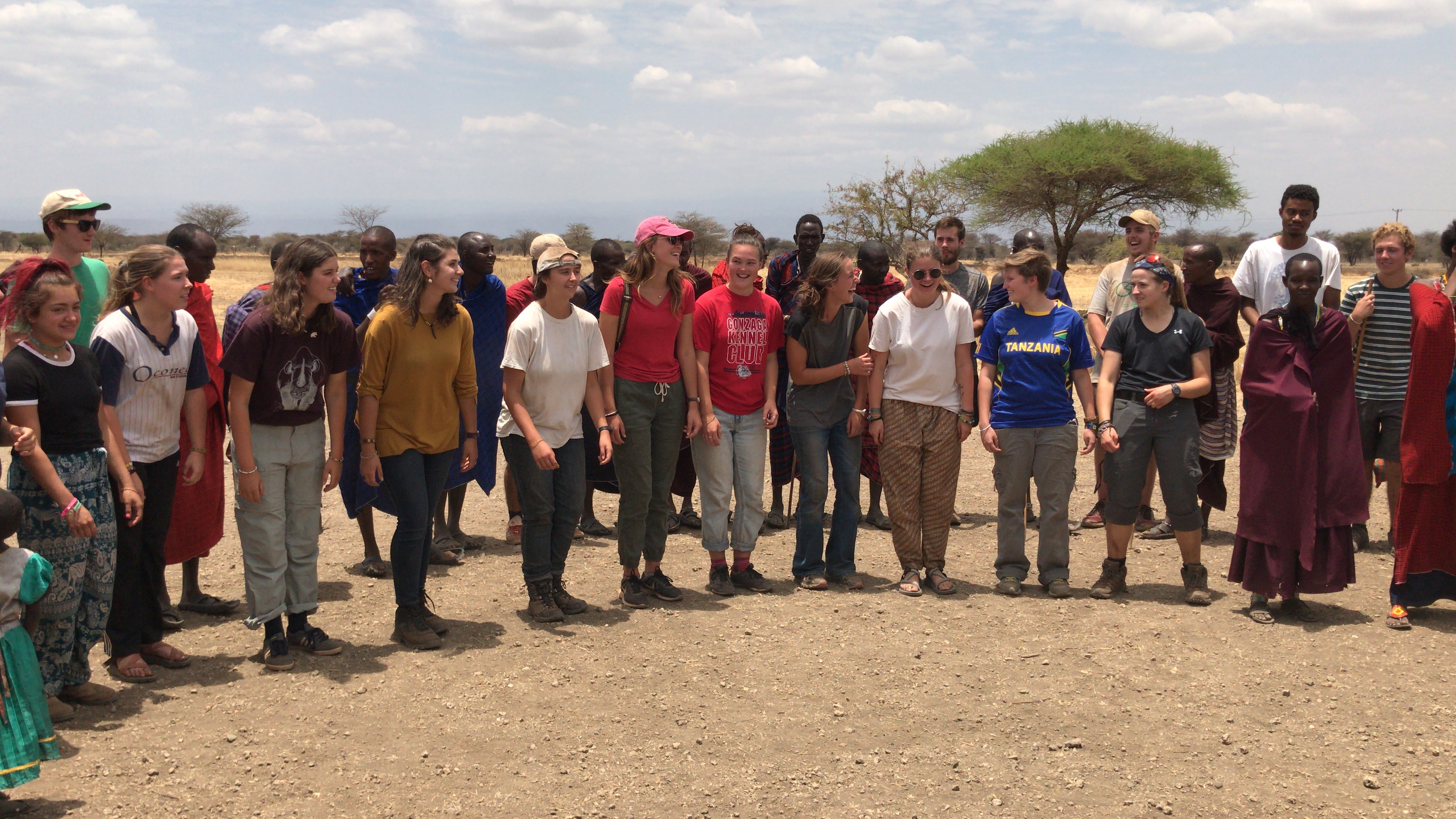 We joined the dance party, we didn’t want to miss out on the fun
We joined the dance party, we didn’t want to miss out on the fun
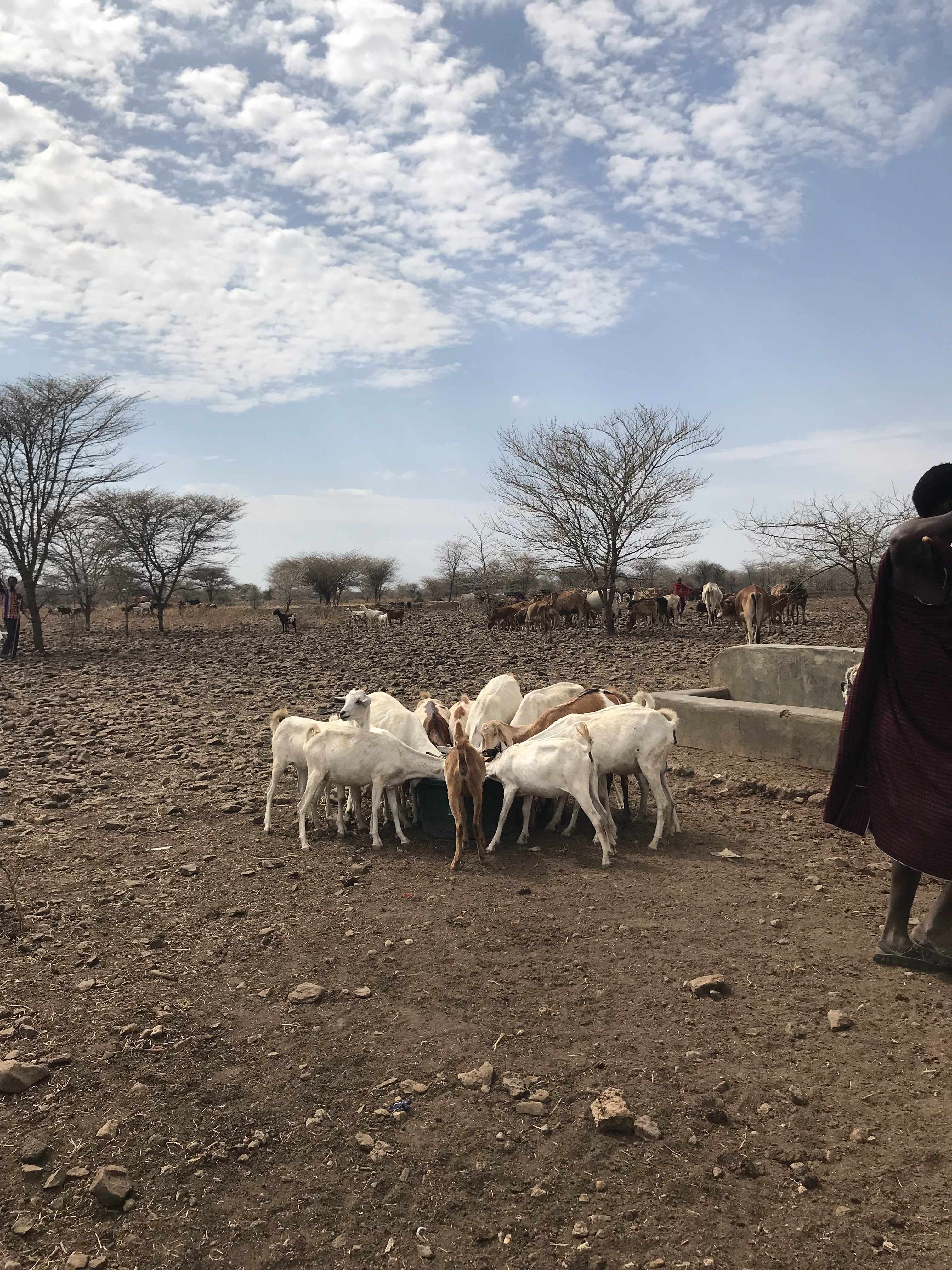 All the sheep drinking water from the water bank as we waited to get some water for the bomas
All the sheep drinking water from the water bank as we waited to get some water for the bomas
I hope you enjoyed this cultural experience as much as I did!
Until next time,
Baadaye!
